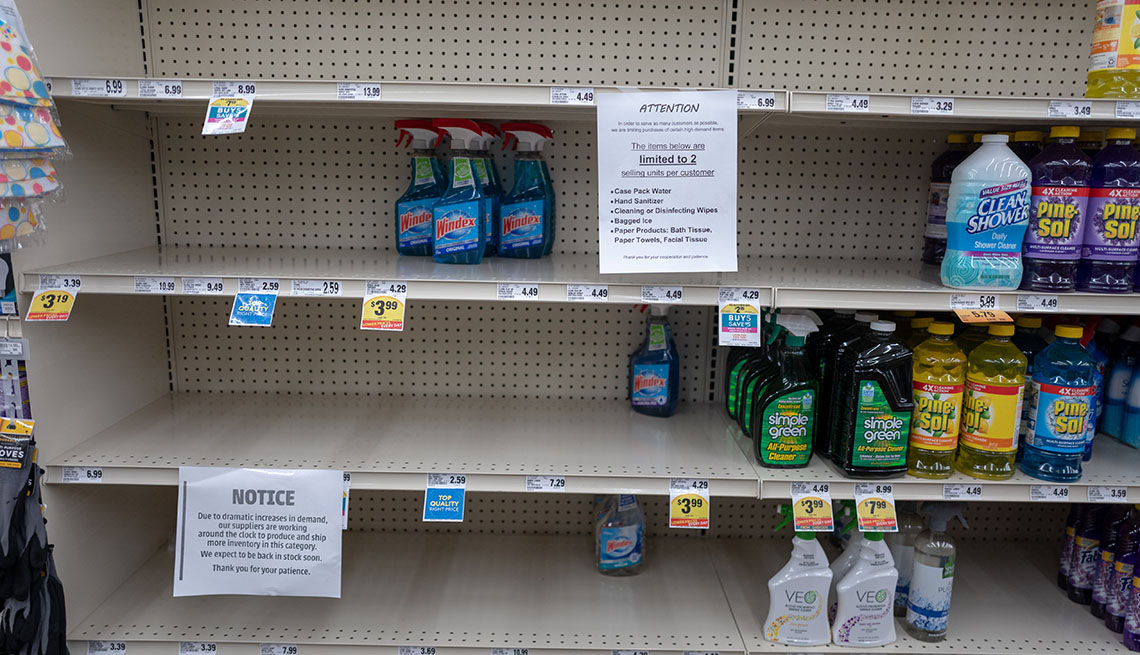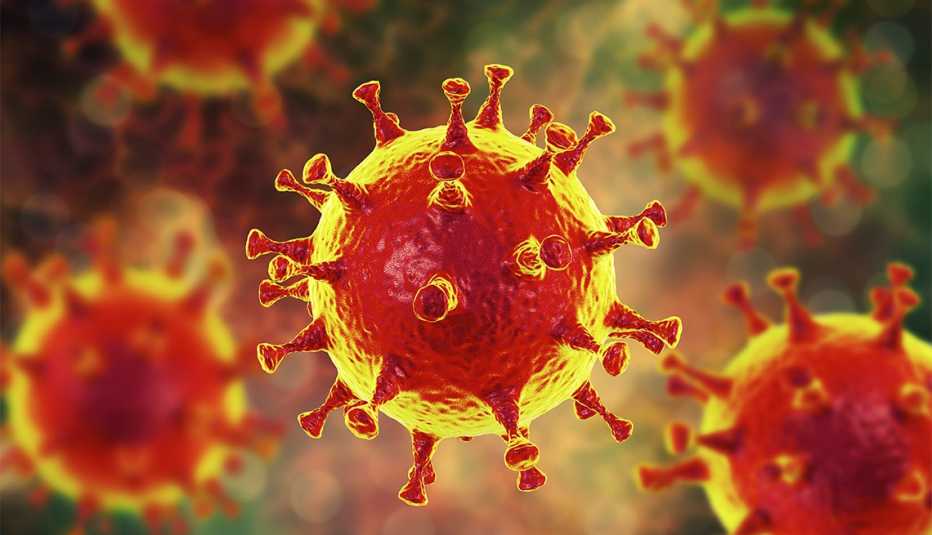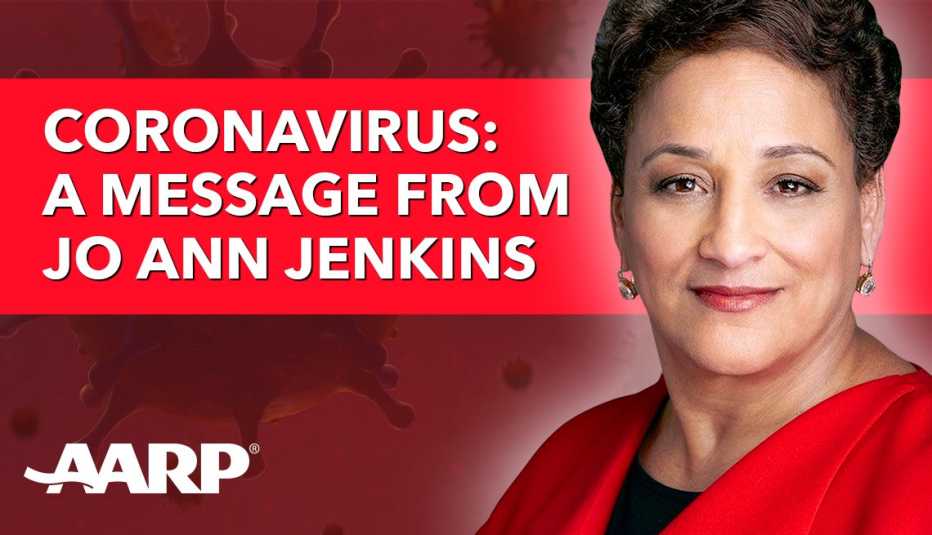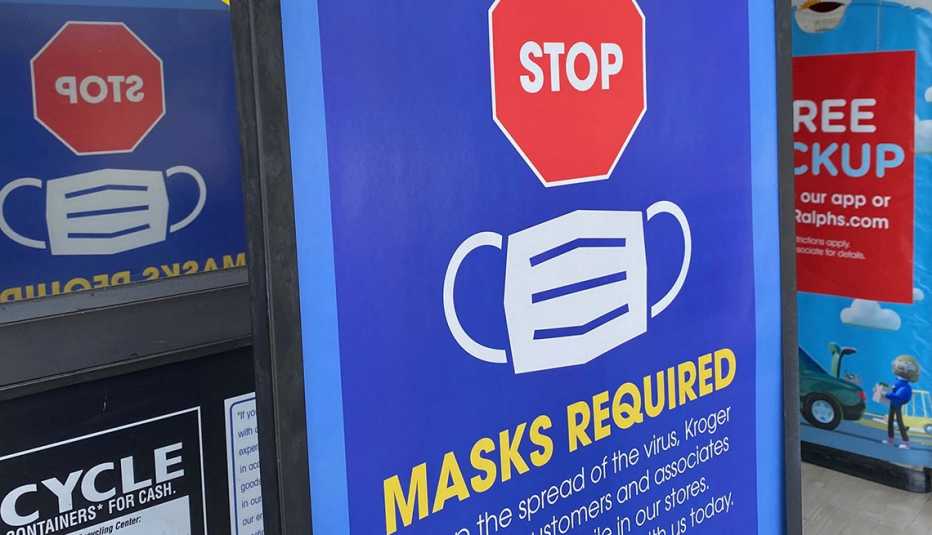Staying Fit
Months into the coronavirus pandemic, shelves once stocked with everyday household cleaning products remain picked over — or worse, bare — in retail stores across the country.
Antibacterial wipes and disinfectant sprays are a rare sighting, and multipurpose powders, tablets and foams can be just as difficult to track down. The Environmental Protection Agency's (EPA) July 6 announcement that two Lysol sprays were proven effective in lab testing to kill the novel coronavirus on surfaces hasn't helped matters. AARP has heard from many members nationwide indicating that the two Lysol sprays are all but impossible to find online or at local retailers. (The EPA later announced on July 30 that 13 more products have received the same stamp of approval for their ability to eliminate the virus in lab testing.) All the while, the Centers for Disease Control and Prevention (CDC) recommends cleaning and disinfecting frequently touched surfaces as a way to protect against a coronavirus infection. So what's a person to do?


AARP Membership— $12 for your first year when you sign up for Automatic Renewal
Get instant access to members-only products and hundreds of discounts, a free second membership, and a subscription to AARP the Magazine.
Focus less on disinfecting, more on handwashing
If you can't get your hands on cleaning products, switch your prevention strategy and, instead, focus on your hands. After all, frequent handwashing is “the most effective way to break the chain” of virus transmission from contaminated surfaces, says Joseph Allen, an assistant professor of exposure assessment science and director of the Healthy Buildings Program at Harvard's T.H. Chan School of Public Health.
When it comes to cleaning and disinfecting — especially high-touch surfaces such as doorknobs and light switches in schools and offices — “it's really difficult to clean and disinfect enough,” Allen says. “To really eliminate the hazard, you'd have to clean and disinfect every single time someone touched something. Well, that's not practical; it's not feasible. And it's also not the right strategy. The better strategy is when people come into the building, they wash their hands and use hand sanitizer,” and they continue to do so throughout the day.
Also: Don't forget about additional prevention measures, such as keeping at least 6 feet from others and wearing a face covering in public. It may be possible to catch the virus by touching a surface or object that has the virus on it and then touching your mouth, nose or eyes, the CDC says. But experts think you're more likely to catch it from respiratory droplets exchanged during close contact with an infected individual.
Hundreds of cleaners work against the coronavirus
Lysol Disinfectant Spray and Lysol Disinfectant Max Cover Mist were the first disinfectant products to receive EPA approval for their proven effectiveness in killing the new coronavirus (SARS-CoV-2) on surfaces in lab testing. Thirteen additional products, including Lysol Disinfecting Wipes and 12 products from manufacturer Lonza, have since received the same EPA approval, bringing the total number of approved products to 15. But there are other cleaners out there that are presumably just as good of a match against the virus that have yet to undergo lab testing. In fact, the EPA has a list of more than 460 products that meet its criteria for use against SARS-CoV-2, and the agency expects more of them will receive its official approval in the near future, once lab testing results are submitted and reviewed.



































































